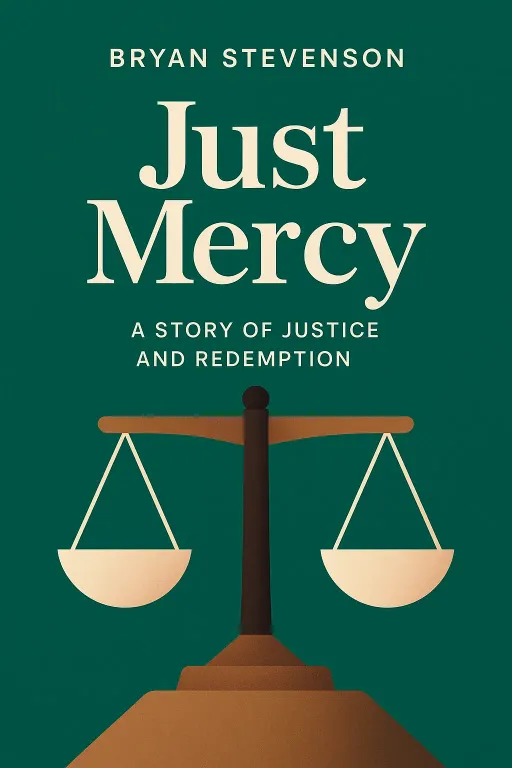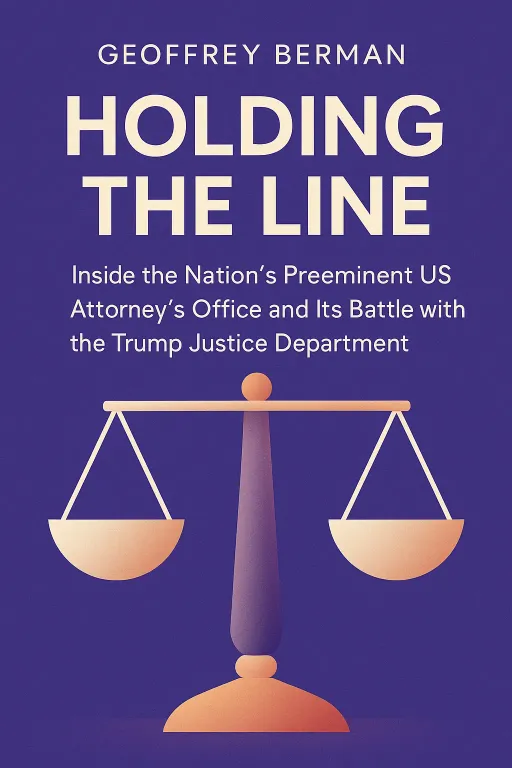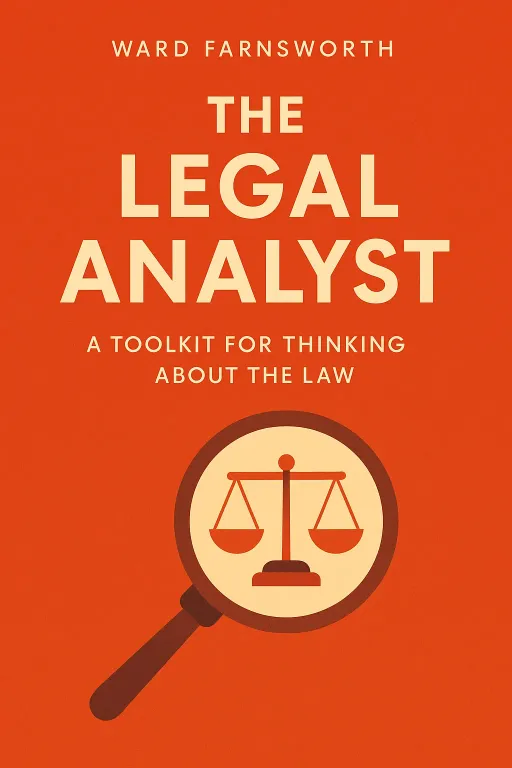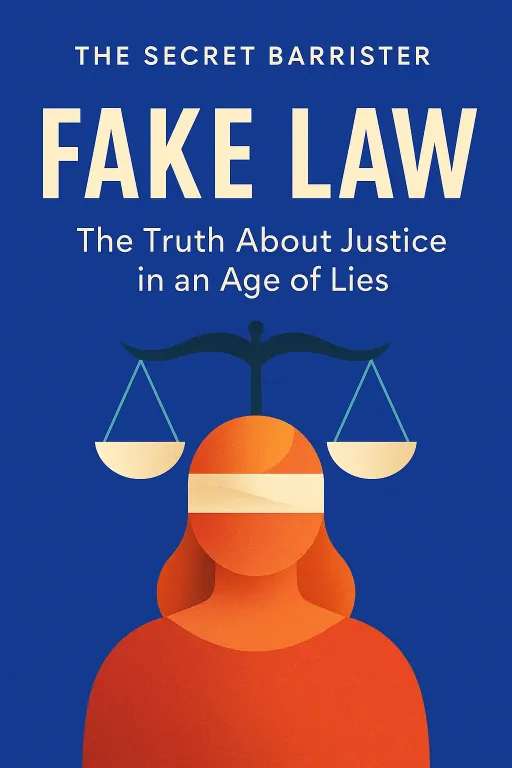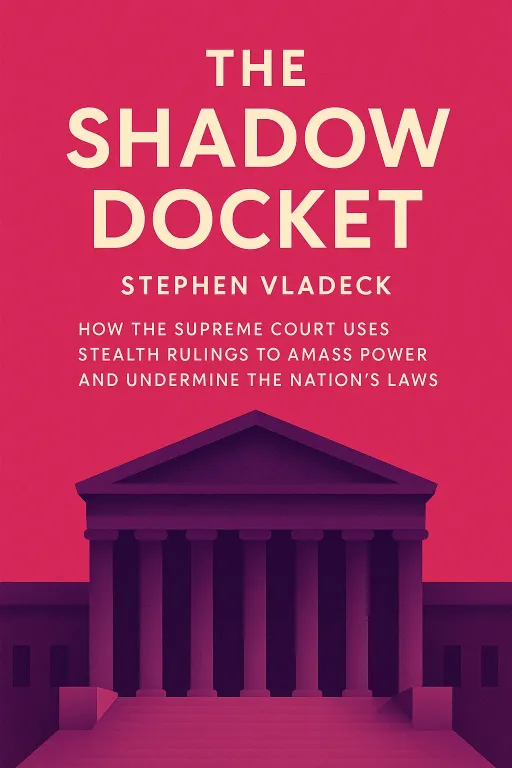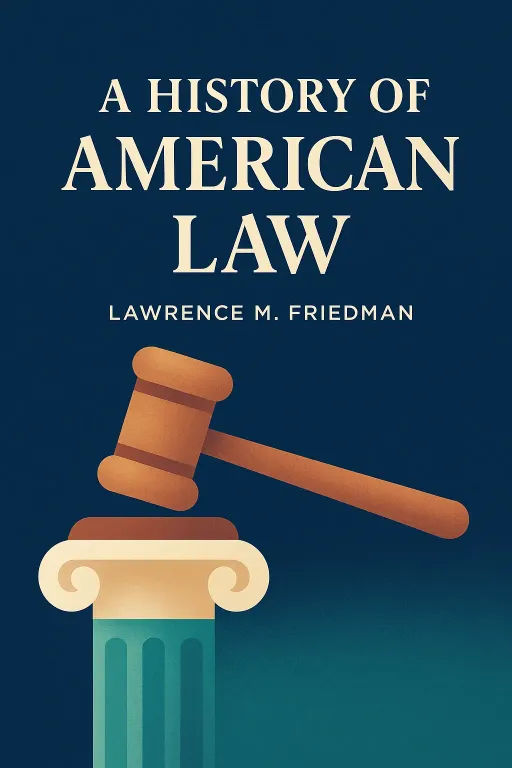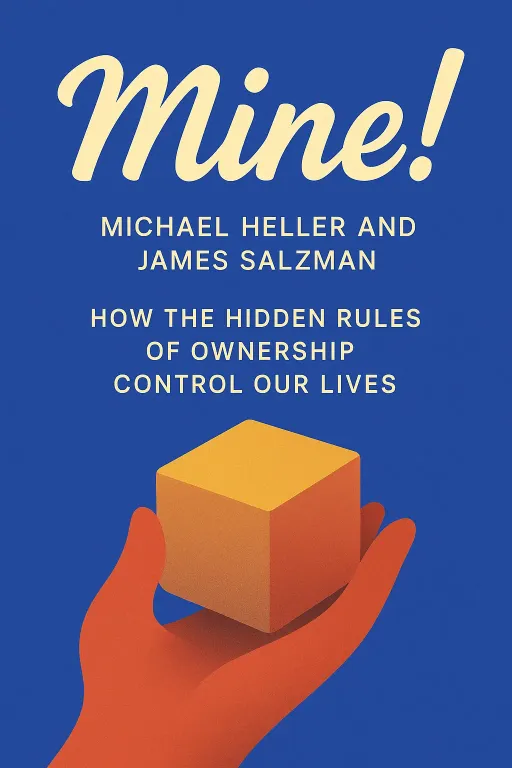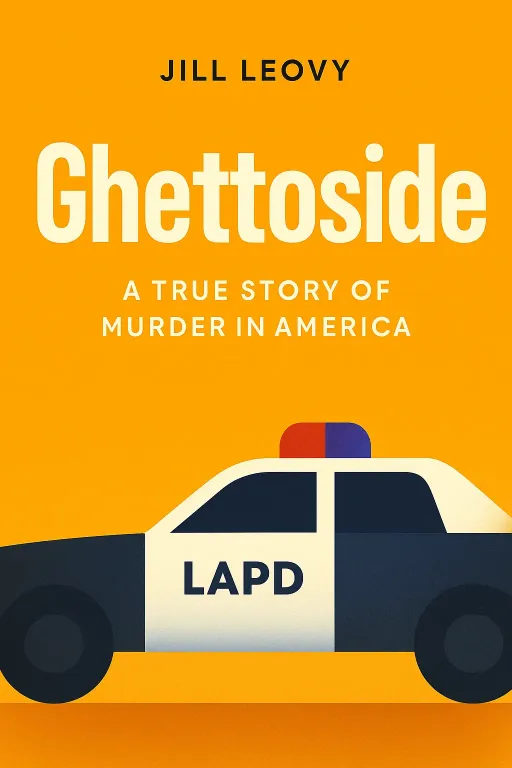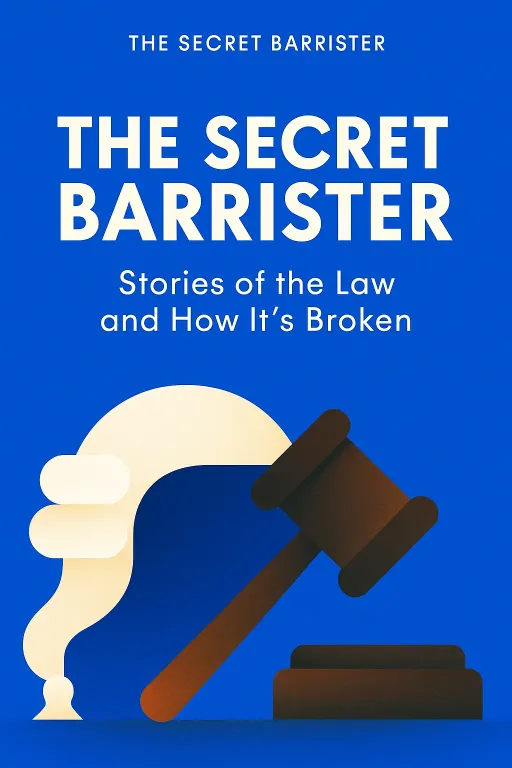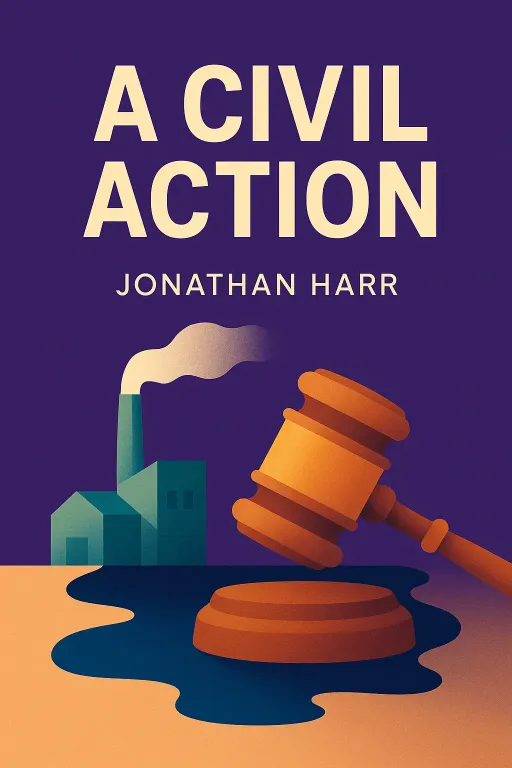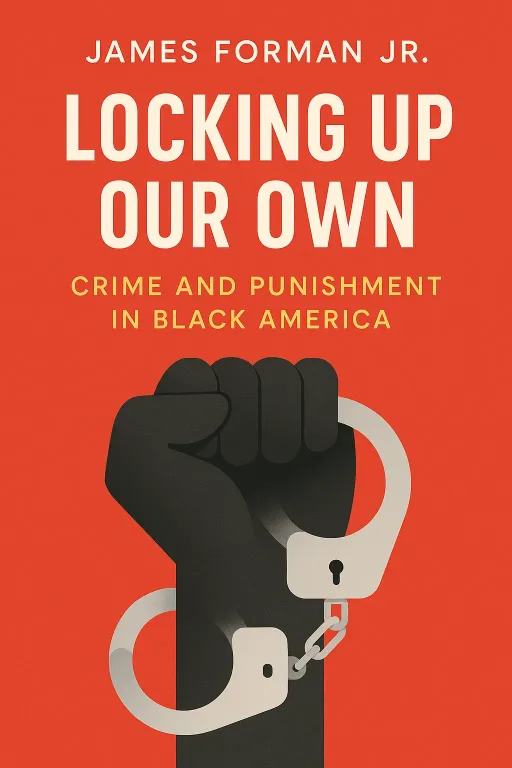
Building Our Own Cages
10 minCrime and Punishment in Black America
Golden Hook & Introduction
SECTION
Michael: The war on drugs wasn't just waged against Black communities; in some of the most crucial moments, it was supported from within. We're talking about Black leaders, in a majority-Black city, demanding harsher drug laws. It's a story that turns almost everything we think we know on its head. Kevin: Hold on, that can't be right. The entire narrative we've heard for decades is that these devastating policies were forced on Black communities by a racist system. You're saying they asked for it? Michael: That's precisely the uncomfortable, shattering paradox explored in the Pulitzer Prize-winning book we're diving into today: Locking Up Our Own: Crime and Punishment in Black America by James Forman Jr. Kevin: Locking Up Our Own. The title itself is a gut punch. Michael: It is. And what makes this book so powerful is the author's background. James Forman Jr. isn't some distant academic; he's the son of major civil rights leaders, and he spent six years as a public defender in Washington, D.C. He was in the courtroom, representing the very people caught in this tragic web. He saw it all from the inside. Kevin: Wow, okay. So he has the historical legacy and the street-level experience. That changes things. Where does he even begin to unravel a story that complicated? Michael: He starts with a perfect, mind-bending example from 1975 Washington D.C., a moment that captures the entire dilemma in a single political battle.
The Surprising 'No' to Marijuana Decriminalization
SECTION
Michael: So, picture the scene. It's 1975. Washington, D.C. has just gotten home rule. For the first time, it has a majority-Black city council and its first elected Black mayor. This is a moment of incredible Black political empowerment. Kevin: A huge victory from the Civil Rights movement, I imagine. A chance to finally build policies that serve the community. Michael: Exactly. And at the same time, there's a national movement to decriminalize marijuana. States are realizing that arresting people for pot is a waste of resources. In D.C., a white city councilman named David Clarke champions this. He frames it as a clear civil rights issue. He presents data showing that while Black and white people used marijuana at similar rates, a staggering 80% of those arrested for it in D.C. were Black. Kevin: Okay, so this seems like a complete no-brainer. A slam dunk. The new Black leadership gets to pass a law that stops the police from harassing and arresting young Black men. They must have jumped on this, right? Michael: That's the astonishing twist. They didn't. In fact, some of the most powerful Black voices in the city lined up to kill the bill. Kevin: What? Why on earth would they do that? It feels like voting against their own interests. Michael: Because they were terrified. They weren't pro-arrest, but they were deeply afraid of what drugs were doing to their community. A Black councilman named Douglas Moore argued that white kids could afford to "lull themselves with reefer," but Black kids couldn't. He said, and this is a direct quote, "Black people don't have the time or the resources to waste themselves in a world of distorted reality." Kevin: That is a brutal piece of logic. He’s essentially saying, our kids are already so far behind, we can't let them have a single crutch, even if the alternative is a racist justice system. Michael: You've got it. Another prominent Black judge, John Fauntleroy, testified against the bill, arguing it would jeopardize the futures of Black teenagers who were already struggling. The Black church mobilized, seeing it as a profound moral threat. They saw marijuana not as a liberty issue, but as another tool of oppression, something that would keep their youth "asleep" when they needed to be wide awake to fight for their rights. Kevin: So it was a protective instinct that backfired catastrophically. They were trying to shield their kids from one danger and, in doing so, pushed them directly into the jaws of another, much bigger one. Michael: Precisely. They chose what they believed was the lesser of two evils. In the end, the decriminalization bill was tabled. It died. And the arrests of young Black men for marijuana in D.C. continued for decades. It was a critical fork in the road, and the path they chose, for reasons they felt were righteous, led directly toward mass incarceration.
The Tragic Embrace of 'Tough on Crime'
SECTION
Kevin: That story is just… wow. It sets up this theme of impossible choices. But was marijuana the main driver, or was there something bigger they were afraid of? Michael: Oh, much bigger. The fear around pot was a symptom. The disease, as they saw it, was the heroin epidemic and, especially, the explosion of gun violence. And this is where the story moves from a political paradox to a full-blown tragedy. Kevin: I can only imagine. If your neighborhood is turning into a warzone, your priorities shift dramatically. Michael: Completely. Forman tells the story of a man named Richard Ware. In April 1975, his son, Richard Ware III, an assistant manager at a grocery store, was shot and killed during a robbery. He was a young man with a future, and he was gone. His father, consumed by grief and rage, went to the city council and demanded they do something to "halt the slaughter in the streets." Kevin: That's a story you can't argue with. It's the rawest human pain. A father loses his son to violence, and he wants that violence to stop. It's the most natural reaction in the world. Michael: Of course. And the statistics backed up his grief. In 1974, 85% of the people killed by guns in D.C. were Black. So Black leaders like Councilman John Wilson responded to that cry for help. They pushed for, and passed, one of the strictest gun control laws in the entire nation. But that same logic—the desperate need for safety at any cost—soon bled into sentencing. Kevin: And that’s where things really escalate. Michael: That's where they escalate. By the early 1980s, residents were furious about what they called "revolving door justice." They felt dealers and violent criminals were arrested and then back on the street in hours. So another councilman, John Ray, a Black man representing a predominantly Black ward, began a crusade to get tough on sentencing. He started pushing for mandatory minimums. Kevin: Mandatory minimums. That's a term we hear all the time, and it always sounds ominous. Can you break down what that actually means on the ground? Michael: It means taking all power away from judges. Before, a judge could look at a case—say, a young man caught selling a small amount of drugs—and consider the circumstances. Was he an addict? Was he desperate? The judge could sentence him to probation or a treatment program. With a mandatory minimum, none of that matters. The law dictates a specific, harsh prison sentence. If you're convicted of selling drugs within a certain distance of a school, for example, the judge's hands are tied. You have to go to prison for a set number of years. Kevin: It’s a machine. It removes all humanity, all context, from the process. And you're saying Black leaders were pushing for this? Michael: Not just pushing for it. When the council initially resisted, Ray and his allies took it directly to the people with a ballot initiative. And in 1982, the Black community of Washington, D.C., desperate for an end to the violence and chaos, voted for it. Overwhelmingly. Every single ward in the city, including the poorest and most crime-ridden Black neighborhoods, approved mandatory minimum sentences. Kevin: That is absolutely staggering. They voted to build the very system that would become known for decimating their own community. Michael: They were trying to put out a fire. And the only tool anyone was offering them was a sledgehammer.
Synthesis & Takeaways
SECTION
Kevin: It’s just this devastating chain of events, isn't it? A community is being terrorized by crime and addiction. They plead with their leaders for help. And the only solutions on the table are more police, stricter laws, and longer prison sentences. They were trying to save themselves, but in the process, they helped build their own cage. Michael: That is the heartbreaking, inescapable conclusion of Forman's book. Mass incarceration wasn't some single, monolithic evil plan handed down from on high. It was built incrementally, piece by painful piece, often with the consent and even the support of the very people it would come to devastate. They were good people making impossible choices in the middle of a crisis. Kevin: It really forces you to move beyond just pointing fingers. It's not a simple story of villains and victims. It’s about understanding the profound fear and desperation that drove these decisions from within the community itself. Michael: And that's why Forman's perspective as a public defender is so crucial. He doesn't just condemn; he seeks to understand. The book's epilogue is titled "The Reach of Our Mercy," and it's where he brings this idea home. He tells a beautiful, true story about one of his former clients, a young man named Dante who committed an armed robbery. Kevin: A serious crime. The kind of person these tough-on-crime laws were designed for. Michael: Exactly. But instead of demanding vengeance, the victim, an older man named Mr. Thomas, chose to show mercy. He came to court and asked the judge to send Dante to a carpentry program instead of prison. The judge, moved by this act of grace, agreed. Years later, Forman runs into Dante, who is working a construction job, has his GED, and is raising a son of his own. He was saved not by a policy, but by an individual act of forgiveness. Kevin: Wow. So the way out of the system they built isn't just about repealing laws, but about changing how we see justice itself. Moving from vengeance to mercy. Michael: That’s the hope Forman leaves us with. It’s a profound challenge. And it makes you wonder, what choices are we making today, right now, out of fear, that will have devastating consequences we can't yet see? Kevin: A question we should all be asking. Michael: This is Aibrary, signing off.
